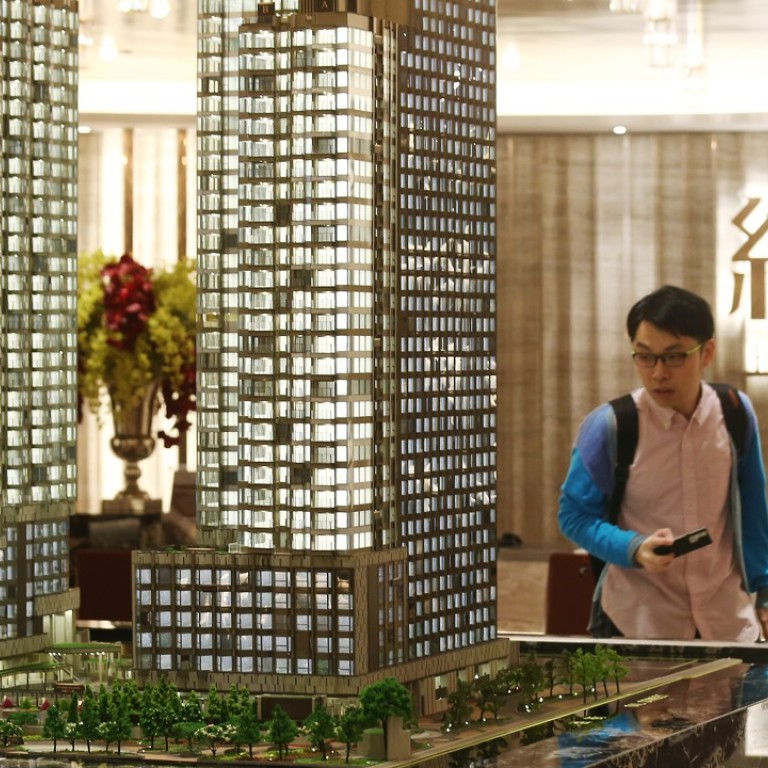
Letters to the Editor, September 4, 2017
Cash is king in Hong Kong predicament
Although Hong Kong is an international city, many people here can have a narrow view of life. A major reason for this is the housing market.
With housing prices at new highs, owning a home in this city is difficult, with many people struggling to make down payments. As a result, when it comes to career choices, most Hongkongers think the money to be made always gets a higher priority than their own interests.
The six top scorers in the Hong Kong Diploma of Secondary Education said they were going to join the medical field. However, how many are really following their interest?
Would we prefer to get a job that we are interested in, or be a robot that only works for the money? My dream is to be a teacher. I have a passion for teaching, and I believe that would make me more productive. So it would be a win-win both for me and for society.
Our social situation is encouraging people to prioritise making money over all else. This has to be addressed. Hopefully, Hong Kong won’t be the grave of dreams any more.
Chelsea Luo Wing Yan, Lohas Park
Home prices are widening wealth gap
First, ever-rising property prices will widen the wealth gap, creating an M-shaped society, where the rich become richer, and the poor even poorer.
Second, most buyers of high-end homes are from the mainland and not Hong Kong residents. This causes an imbalance in the demand and supply of flats for Hong Kong residents. It also causes further increases in property prices. It is a vicious cycle. Cage homes and subdivided flats are the sad result of this cycle.
The Hong Kong government should limit the number of buyers from the mainland and overseas. This will protect the rights of Hongkongers. Also, more public flats should be built so that even poor families can have a home to call their own.
There are ways to solve the housing problem in Hong Kong, such as building on the brownfield sites in the New Territories. The government can choose to develop brownfields, as it is a simple way to provide land for housing within a short time.
Selling government land more cheaply is also a way to solve the problem. If this will lead to lower prices for flats, citizens will be the ultimate gainers.
Another effective way to stop the price spiral would be stopping foreign investors from using homes in Hong Kong as a safety deposit.
Donald Wong, Tseung Kwan O
E-books would relieve burden for students
I carry a heavy schoolbag to classes every day, as do most other students.
We have to study many subjects during the day, so a lot of books are needed.
Medical research shows that carrying heavy schoolbags over a period of time can affect the growth of the spine among youngsters, and such deformity may even restrict heart and lung function, making corrective surgery necessary.
Moreover, with the price of school textbooks rising every year, and publishers constantly changing the content, parents have to spend a lot on books, and even then can’t buy them sometimes because of a supply shortage. The escalating cost could also be a problem for poorer families.
I believe e-books are the solution. These are environmentally friendly, as they do not involve cutting down trees for paper. They are also lightweight, and so less of a burden on our backs. Each e-book stores a lot of information, so students will not need not carry several textbooks to class every day. Moreover, e-books last longer than textbooks, as paper can suffer significant wear and tear.
I realise that the cost could be a headache for less well-off families. To address this, the government could consider a subsidy scheme.
Kenneth Cheung Ho Yeung, Hang Hau
Save outdoor activities for fine weather
Taking part in outdoor sports under extreme weather, or when such conditions are expected, is a naive act.
Hong Kong was hit by two big typhoons within a week. Major damage included fallen trees, submerged car parks and flooding in places like Tai O.
On days like this, firefighters and the police force are on alert. But some citizens will stretch the emergency services, by choosing to go hiking or swimming.
They may enjoy the wind and rain, but I am concerned about their lives, as well as those of the service personnel who may need to rescue them.
Jack Chung, Sham Shui Po
Killing sharks upsets balance of marine life
I welcome the UN move to protect blue sharks, even though they are not endangered (“Hong Kong shark fin traders ‘will be hit hard’ by proposal to protect blue sharks”, August 28).
I think eating shark fin soup is not only environmentally unfriendly, it is also cruel, as the sharks are thrown back into the sea to die, minus their fins. Dwindling shark populations are also destabilising marine ecosystems, as sharks are apex predators and play a major role as ecological stabilisers.
Cherry Chan Tze Ying, Po Lam

